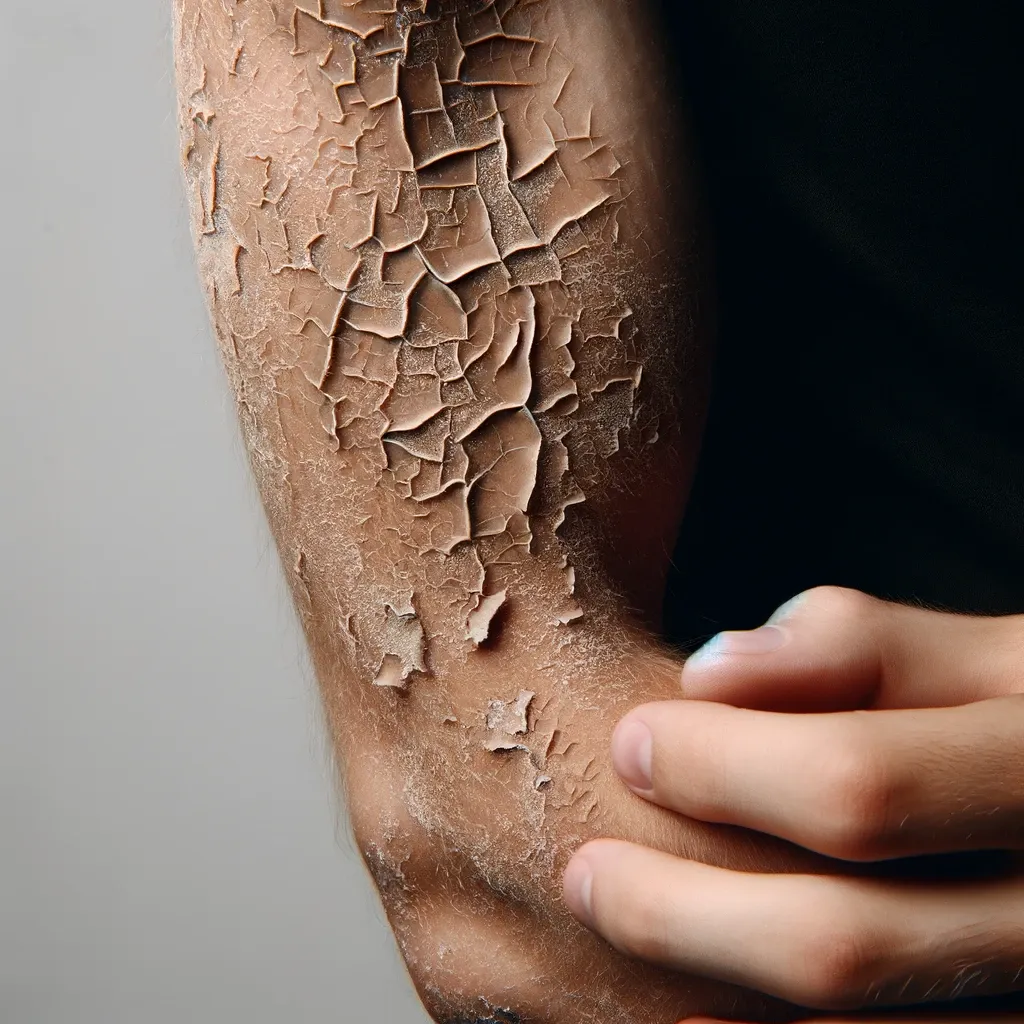Is your skin feeling dry and irritated? Find out how you can nourish your skin with the right nutrients. Learn all about dry skin, how it impacts your health, and which essential nutrients can help restore moisture and vitality.
Dry skin is a common problem that many people face, especially during colder months or in dry environments. It can lead to discomfort, itching, and sometimes even cracks in the skin. However, with the right understanding of the causes and proper care, you can effectively manage and prevent dry skin. In this article, we’ll delve into the factors contributing to dry skin, the essential nutrients that support skin health, and how you can improve your skin’s condition with simple steps.
Dry Skin: Causes and Symptoms
Dry skin, also known as xerosis, occurs when the skin loses its moisture and becomes rough, flaky, or cracked. This condition can be uncomfortable and, if not addressed properly, can lead to more serious issues like infections or eczema. Several factors contribute to dry skin, including environmental influences, lifestyle habits, and underlying health conditions.
Causes of Dry Skin:
-
Cold Weather Cold air and low humidity are common causes of dry skin. In the winter, the lack of moisture in the air can strip your skin of its natural oils.
-
Hot Showers While a warm shower can feel soothing, hot water can actually strip your skin of essential oils that help retain moisture.
-
Harsh Soaps Many soaps, especially those containing alcohol or artificial fragrances, can disrupt the skin’s natural barrier, leading to dryness.
-
Aging As we age, our skin produces fewer natural oils, which can result in dryness and a loss of elasticity.
-
Underlying Health Conditions Conditions such as eczema, psoriasis, or diabetes can make your skin more prone to dryness.
Symptoms of Dry Skin:
-
Flakiness One of the most noticeable signs of dry skin is the presence of flakes or scales on the skin’s surface.
-
Itching Dry skin can cause itching, which may worsen with scratching and lead to further irritation.
-
Cracking In severe cases, dry skin can crack, leaving the skin vulnerable to infection.
-
Redness The skin may become inflamed or red, especially after exposure to harsh weather or hot water.
👉 Learn More About Dry Skin Causes 👈
How to Combat Dry Skin:
To combat dry skin, start by incorporating moisturizing products into your daily routine. Look for creams and lotions that contain ingredients like hyaluronic acid, glycerin, and ceramides, which help lock in moisture. Additionally, maintaining proper hydration by drinking plenty of water is crucial. Avoid harsh soaps and limit hot showers to protect your skin’s natural oils.
Skin Dry Nutrients: Essential Vitamins and Minerals for Hydration
When it comes to dry skin, certain nutrients play a critical role in supporting skin health and hydration. These nutrients not only help improve the skin’s ability to retain moisture but also contribute to overall skin health, giving you a glowing, healthy complexion.
Key Nutrients for Dry Skin:
-
Vitamin A Essential for skin regeneration, vitamin A helps improve the skin’s ability to shed dead cells and promote new cell growth.
-
Vitamin E Known for its antioxidant properties, vitamin E helps protect the skin from free radical damage and improves moisture retention.
-
Omega-3 Fatty Acids Found in fish, flaxseeds, and walnuts, omega-3 fatty acids help strengthen the skin’s barrier, keeping moisture locked in.
-
Vitamin C This vitamin is vital for collagen production, which keeps the skin firm and hydrated.
-
Zinc Zinc plays a crucial role in wound healing and reducing inflammation, helping to restore dry or cracked skin.
Top Sources of Skin-Boosting Nutrients:
-
Carrots and Sweet Potatoes Rich in vitamin A, these foods promote healthy skin cell turnover.
-
Avocados Packed with healthy fats, avocados help nourish the skin and improve its elasticity.
-
Fatty Fish Salmon, mackerel, and sardines are excellent sources of omega-3 fatty acids, which are key for maintaining skin hydration.
-
Citrus Fruits Oranges, grapefruits, and lemons are high in vitamin C, helping to improve skin elasticity and promote moisture retention.
👉 Explore More Nutrients for Skin Health 👈
How These Nutrients Help:
These nutrients work together to repair damaged skin cells, reduce inflammation, and provide your skin with the hydration it needs to remain soft and supple. By incorporating a nutrient-rich diet into your routine, you can significantly improve your skin’s moisture retention and overall health.
Skin Health Nutrients: A Holistic Approach to Hydration
Maintaining overall skin health requires more than just topical treatments. A balanced approach that includes proper hydration, nutrient intake, and consistent skincare practices can help you keep your skin healthy and hydrated. In this section, we’ll focus on the broader concept of skin health, exploring both the internal and external factors that contribute to optimal skin condition.
Best Practices for Skin Health:
-
Hydration Drinking plenty of water throughout the day helps maintain skin moisture from the inside out.
-
Balanced Diet A diet rich in fruits, vegetables, healthy fats, and lean proteins provides the nutrients your skin needs to stay hydrated and healthy.
-
Regular Skincare Routine Consistently moisturizing and using products suited for your skin type will help maintain hydration and protect your skin from dryness.
-
Sun Protection Exposure to the sun’s harmful rays can damage your skin and cause it to lose moisture. Always use sunscreen, especially during the summer months.
-
Avoiding Stress Chronic stress can impact skin health, leading to conditions like eczema and psoriasis. Practicing relaxation techniques can help mitigate these effects.
How to Achieve Balanced Skin Health:
By nourishing your skin both inside and out, you’ll improve its ability to retain moisture and keep dryness at bay. Consider using a combination of hydrating skincare products and nutrient-rich foods to achieve the best results. Additionally, don’t forget the importance of quality sleep and stress management, as these factors also play a role in skin health.
👉 Discover More About Skin Health 👈
Conclusion
Dry skin can be a frustrating condition, but with the right knowledge and care, it’s manageable. By understanding the causes of dry skin and focusing on the right nutrients, you can keep your skin healthy and hydrated. Incorporate vitamins like A, E, and C, along with omega-3 fatty acids and zinc, into your diet to promote better skin health. Additionally, maintaining a balanced skincare routine, staying hydrated, and protecting your skin from environmental damage can make all the difference in achieving smooth, moisturized skin.
As the famous dermatologist Dr. Howard Murad once said, “Healthy skin is a reflection of a healthy body.” By paying attention to both your internal health and external skincare practices, you’ll be able to enjoy the benefits of well-hydrated, glowing skin.






